Militarism Quotes
Quotes tagged as "militarism"
Showing 1-30 of 79
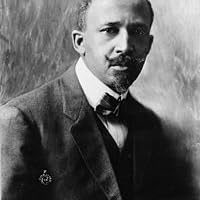
“What do nations care about the cost of war, if by spending a few hundred millions in steel and gunpowder they can gain a thousand millions in diamonds and cocoa?”
―
―

“Nothing so comforts the military mind as the maxim of a great but dead general.”
― The Guns of August
― The Guns of August

“He explained to Atro that he now understood why the army was organized as it was. It was indeed quite necessary. No rational form of organization would serve the purpose. He simply had not understood that the purpose was to enable men with machine guns to kill unarmed men and women easily and in great quantities when told to do so. Only he still could not see where courage, or manliness, or fitness entered in.”
― The Dispossessed: An Ambiguous Utopia
― The Dispossessed: An Ambiguous Utopia

“...overgrown military establishments, which, under any form of government, are inauspicious to liberty, and which are to be regarded as particularly hostile to Republican Liberty.”
― George Washington's Farewell Address
― George Washington's Farewell Address
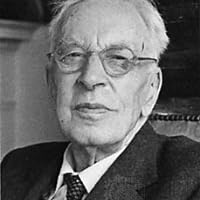
“Militarism has been by far the commonest cause of the breakdown of civilizations. The single art of war makes progress at the expense of all the arts of peace.”
―
―
“The greatest threat to peace is the barrage of rightist propaganda portraying war as decent, honorable, and patriotic.”
―
―
“I spent 33 years and 4 months in active military service . . . And during that period I spent most of my time as a high-class muscle man for Big Business, for Wall Street and the bankers. In short, I was a racketeer, a gangster for capitalism.
Thus, I helped make Mexico and especially Tampico safe for American oil interests in 1914. I helped make Haiti and Cuba a decent place for the National City Bank boys to collect revenues in. I helped in the raping of half a dozen Central American republics for the benefit of Wall Street.
I helped purify Nicaragua for the international banking house of Brown Brothers in 1902–1912. I brought light to the Dominican Republic for American sugar interests in 1916. I helped make Honduras right for American fruit companies in 1903. In China in 1927, I helped see to it that Standard Oil went on its way unmolested.
Our boys were sent off to die with beautiful ideals painted in front of them. No one told them that dollars and cents were the real reason they were marching off to kill and die.”
―
Thus, I helped make Mexico and especially Tampico safe for American oil interests in 1914. I helped make Haiti and Cuba a decent place for the National City Bank boys to collect revenues in. I helped in the raping of half a dozen Central American republics for the benefit of Wall Street.
I helped purify Nicaragua for the international banking house of Brown Brothers in 1902–1912. I brought light to the Dominican Republic for American sugar interests in 1916. I helped make Honduras right for American fruit companies in 1903. In China in 1927, I helped see to it that Standard Oil went on its way unmolested.
Our boys were sent off to die with beautiful ideals painted in front of them. No one told them that dollars and cents were the real reason they were marching off to kill and die.”
―

“Maybe he hadn't thought the war through. It had seemed like simple fun when he had first pictured it, with a glorious beginning, a difficult but valor-filled middle, and a victorious end. He hadn't accounted for the fact that there might not be much of a resolution to the battle, and he hadn't imagined what it would feel like when the war just sort of ended, without anyone admitting defeat and congratulating him for his bravery.”
― The Wild Things
― The Wild Things

“So, whenever the subject of Iraq came up, as it did keep on doing through the Clinton years, I had no excuse for not knowing the following things: I knew that its one-party, one-leader state machine was modeled on the precedents of both National Socialism and Stalinism, to say nothing of Al Capone. I knew that its police force was searching for psychopathic killers and sadistic serial murderers, not in order to arrest them but to employ them. I knew that its vast patrimony of oil wealth, far from being 'nationalized,' had been privatized for the use of one family, and was being squandered on hideous ostentation at home and militarism abroad. (Post-Kuwait inspections by the United Nations had uncovered a huge nuclear-reactor site that had not even been known about by the international community.) I had seen with my own eyes the evidence of a serious breach of the Genocide Convention on Iraqi soil, and I had also seen with my own eyes the evidence that it had been carried out in part with the use of weapons of mass destruction. I was, if you like, the prisoner of this knowledge. I certainly did not have the option of un-knowing it.”
― Hitch 22: A Memoir
― Hitch 22: A Memoir

“Yet I now ask of you—are you marauders or are you servants? Do you give power to others, or do you hoard it? Do you fight not to have something, but rather fight so that others might one day have something? Is your blade a part of your soul, or is it a burden, a tool, to be used with care? Are you soldiers, my children, or are you savages?”
― City of Blades
― City of Blades

“Max had to think about these new developments. He hadn't liked getting hit by a rock--his stomach still ached from then rock Judith had thrown--but then again, when his team had used rocks on Alexander, it had caused him to surrender. Now the Bad Guys only had three soldiers left, which would make victory for Max's team more likely. So now it made perfect sense. He was wrong to ban rocks, or even animals. The key was to use all the weapons at one's disposal, but to just make sure you won when you used them.”
― The Wild Things
― The Wild Things
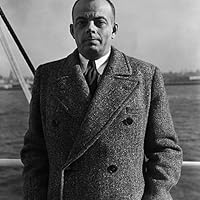
“Men can, of course, be stirred into life by being dressed up in uniforms and made to blare out chants of war. It must be confessed that this is one way for men to break bread with comrades and to find what they are seeking, which is a sense of something universal, of self-fulfillment. But of this bread men die.”
― A Sense Of Life
― A Sense Of Life
“No man can be a Christian and a soldier at the same time, for the two ideas are wholly incompatible.”
―
―
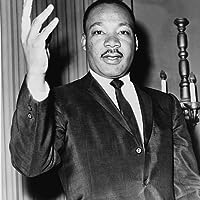
“The question now is, do we have the morality and courage required to live together as brothers and not be afraid?
One of the most persistent ambiguities we face is that everybody talks about peace as a goal, but among the wielders of power peace is practically nobody’s business. Many men cry “Peace! Peace!” but they refuse to do the things that make for peace.
The large power blocs talk passionately of pursuing peace while expanding defense budgets that already bulge, enlarging already awesome armies and devising ever more devastating weapons. Call the roll of those who sing the glad tidings of peace and one’s ears will be surprised by the responding sounds. The heads of all the nations issue clarion calls for peace, yet they come to the peace table accompanied by bands of brigands each bearing unsheathed swords.”
― Where Do We Go from Here: Chaos or Community?
One of the most persistent ambiguities we face is that everybody talks about peace as a goal, but among the wielders of power peace is practically nobody’s business. Many men cry “Peace! Peace!” but they refuse to do the things that make for peace.
The large power blocs talk passionately of pursuing peace while expanding defense budgets that already bulge, enlarging already awesome armies and devising ever more devastating weapons. Call the roll of those who sing the glad tidings of peace and one’s ears will be surprised by the responding sounds. The heads of all the nations issue clarion calls for peace, yet they come to the peace table accompanied by bands of brigands each bearing unsheathed swords.”
― Where Do We Go from Here: Chaos or Community?

“We hold that the State is incapable of good. In the field of international as well as of individual relations it can only combat aggression by making itself the aggressor; it can only hinder crime by organising and committing still greater crime.”
― Anarchists have Forgotten their Principles
― Anarchists have Forgotten their Principles

“We must rapidly begin the shift from a “thing”-oriented society to a “person”-oriented society. When machines and computers, profit motives and property rights are considered more important than people, the giant triplets of racism, materialism and militarism are incapable of being conquered. A civilization can flounder as readily in the face of moral and spiritual bankruptcy as it can through financial bankruptcy.”
― Where Do We Go from Here: Chaos or Community?
― Where Do We Go from Here: Chaos or Community?

“Throughout history, all evil countries with an expansionist militarist mind have been heavily armed under the name of the defense industry. The truth is that there is no distinction between the defense industry and the offensive industry, only the arms industry! Unless the weapon industry is destroyed, humanity will never find peace because if there is a trigger, the one who will pull that trigger will definitely emerge, and the important thing is that the trigger is not produced and if there is one, it is destroyed!”
―
―

“Topnut, DOD Sonnet
Take a fancy celebrity,
put them in military uniform,
suddenly everybody is a patriot.
That's how primitive this world is,
everybody yells about world peace,
while living in militarist gutter.
The best propaganda is one that,
does not feel like propaganda;
Best way to legally recruit terrorists,
is to portray terrorism as valor.
Best way to sustain the revenues of war,
is to showcase war as peace-intervention.
Till you grow up and denounce all militarism,
don't you dare call yourself a civilized human!
We scientists, doctors, nurses and teachers,
forget self-preservation for life-preservation,
while primitive civilians of a primitive planet,
throw all that away, hypnotized by patriotism.”
― Bulletproof Backbone: Injustice Not Allowed on My Watch
Take a fancy celebrity,
put them in military uniform,
suddenly everybody is a patriot.
That's how primitive this world is,
everybody yells about world peace,
while living in militarist gutter.
The best propaganda is one that,
does not feel like propaganda;
Best way to legally recruit terrorists,
is to portray terrorism as valor.
Best way to sustain the revenues of war,
is to showcase war as peace-intervention.
Till you grow up and denounce all militarism,
don't you dare call yourself a civilized human!
We scientists, doctors, nurses and teachers,
forget self-preservation for life-preservation,
while primitive civilians of a primitive planet,
throw all that away, hypnotized by patriotism.”
― Bulletproof Backbone: Injustice Not Allowed on My Watch

“Best way to sustain the revenues of war,
is to showcase war as peace-intervention.
Till you grow up and denounce all militarism,
don't you dare call yourself a civilized human!”
― Bulletproof Backbone: Injustice Not Allowed on My Watch
is to showcase war as peace-intervention.
Till you grow up and denounce all militarism,
don't you dare call yourself a civilized human!”
― Bulletproof Backbone: Injustice Not Allowed on My Watch

“Фашистська політика живиться відчуттям страждального перетворення на жертву, викликаним втратою ієрархічного статусу.”
― How Fascism Works: The Politics of Us and Them
― How Fascism Works: The Politics of Us and Them
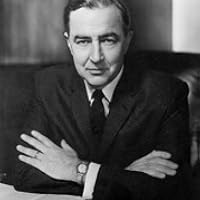
“Eisenhower’s final warning was about the military-industrial complex. And what he didn’t say is that it developed while he was president.”
―
―
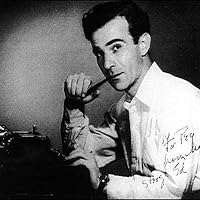
“Had the United States taken the lead in such a world war against poverty, disease and ignorance it would itself have found some means of transition from the “military-industrial complex” escapism into which it has fallen. But aren’t we already doing enough with the four to five billion dollars annually expended in foreign aid? Directly and indirectly, by far the greater part of such sums go into military hardware that is of no value to the poor and is often used as a means of repressing and reducing any chance of peaceful change. In machine poor lands much of the rest goes into the pockets of military sycophants, profiteering merchants, landlords, politicians and the quick among the have-gots. It goes into cars and gasoline and freezers for the few. Too much of it tends to intensify class hatreds, the chasm between rich and poor, and dislike of the Yankees who bring gumdrops but not the means of work.”
― Red China Today: The Other Side of the River
― Red China Today: The Other Side of the River
“The gallery context of Scotch Myths puts the objects on display in an interrogatory framework in a way that their presence in souvenir shops does not. Similarly, the exhibition catalogue explicitly poses the correct questions and reinserts the objects into a history spanning the mid-eighteenth century to the present day: James Macpherson (1736-96), Ossianism; European Romanticism; Walter Scott (1771-1832), the appropriation of Scott and Scotland by Europe and America; the internal reappropriation by Scotland itself of earlier external appropriations, via the emergence of Kailyard; Scottish militarism in the context of nineteenth-century colonial wars, both World Wars and beyond; the dissemination of the ensemble of images and categories of thought within successive practices and technologies - literature, lithography, photography, the postcard, the music hall, films, television. It is one thing to see the imagery of Tartanry/Kailyard in its so-called natural habitats of the souvenir shop or the wall of a Scottish home; it is quite another thing to see it reproduced on orange crates from California.”
― Cencrastus No. 7: Winter 1981-82
― Cencrastus No. 7: Winter 1981-82
All Quotes
|
My Quotes
|
Add A Quote
Browse By Tag
- Love Quotes 98.5k
- Life Quotes 76.5k
- Inspirational Quotes 73.5k
- Humor Quotes 44k
- Philosophy Quotes 30k
- Inspirational Quotes Quotes 27k
- God Quotes 26.5k
- Truth Quotes 24k
- Wisdom Quotes 24k
- Romance Quotes 23.5k
- Poetry Quotes 22.5k
- Death Quotes 20k
- Life Lessons Quotes 20k
- Happiness Quotes 19k
- Quotes Quotes 18k
- Hope Quotes 18k
- Faith Quotes 18k
- Inspiration Quotes 17k
- Spirituality Quotes 15k
- Religion Quotes 15k
- Motivational Quotes 15k
- Writing Quotes 15k
- Relationships Quotes 14.5k
- Life Quotes Quotes 14.5k
- Love Quotes Quotes 14k
- Success Quotes 13.5k
- Time Quotes 12.5k
- Motivation Quotes 12.5k
- Science Quotes 11.5k
- Motivational Quotes Quotes 11.5k







